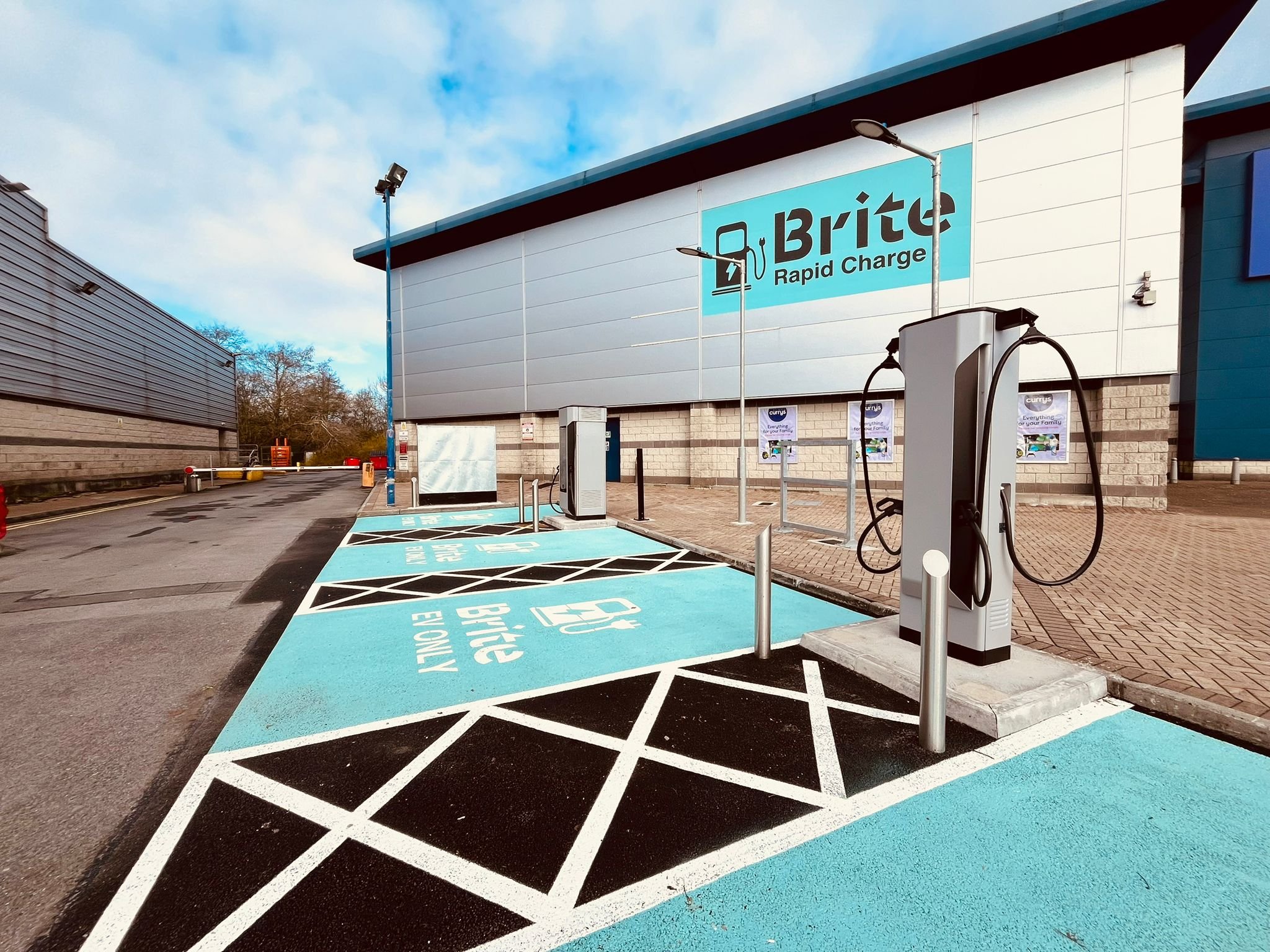
Is Rapid Fast?
How fast is Rapid charging?
Electric vehicle (EV) charging speed refers to the rate at which an electric vehicle's battery can be replenished with electricity from a charging station. It's typically measured in terms of power, usually expressed in kilowatts (kW) or miles of range gained per hour of charging. Brite EV charging stations are Rapid chargers, meaning they range from 150kw - 300kw.
Several factors influence EV charging speed:
1. **Charger Type**: The type of charging station being used significantly affects charging speed. There are primarily three types:
- Level 1 Chargers: These chargers use a standard household outlet (120 volts AC in the US) and are the slowest, typically delivering around 2-5 miles of range per hour of charging.
- Level 2 Chargers: These chargers operate at higher voltages (usually 240 volts AC in the US) and provide faster charging speeds, typically ranging from 10 to 60 miles of range per hour of charging, depending on the vehicle and charger capacity.
- DC Fast Chargers: Also known as Level 3 chargers are the only chargers that Brite Rapid Charge invest in. These deliver high-voltage DC power directly to the vehicle's battery, bypassing the onboard charger. They can provide very rapid charging, often up to 80% charge in around 30 minutes, depending on the charger's power output and the vehicle's compatibility. For example, If your battery is 60kw and your rate of charge is 120kw, then you theoretically should get a 100% charge in 30 mins.
2. **Vehicle Battery Capacity**: The size and capacity of the vehicle's battery pack determine how much energy it can store. A larger battery generally means longer driving range but may also require more time to charge fully.
3. **Charging Infrastructure**: The availability and power capacity of charging stations in a given area also affect charging speed. Areas with more high-power charging stations, especially DC fast chargers, offer faster charging options.
4. **Vehicle Compatibility**: Not all EVs can utilize the full power output of every charging station. Some vehicles may have onboard chargers that limit the maximum charging speed, even if a high-power charger is available.
5. **State of Charge**: Generally, EV batteries charge more quickly when they are at lower states of charge. As the battery approaches full capacity, charging speed may slow down to prevent overheating or damage to the battery.
In summary, EV charging speed is influenced by factors such as the type of charging station, the vehicle's battery capacity, the availability of charging infrastructure, vehicle compatibility, and the state of charge of the battery. As technology advances and more high-power charging stations are deployed, charging speeds are expected to improve, making electric vehicles more convenient and practical for everyday use.
